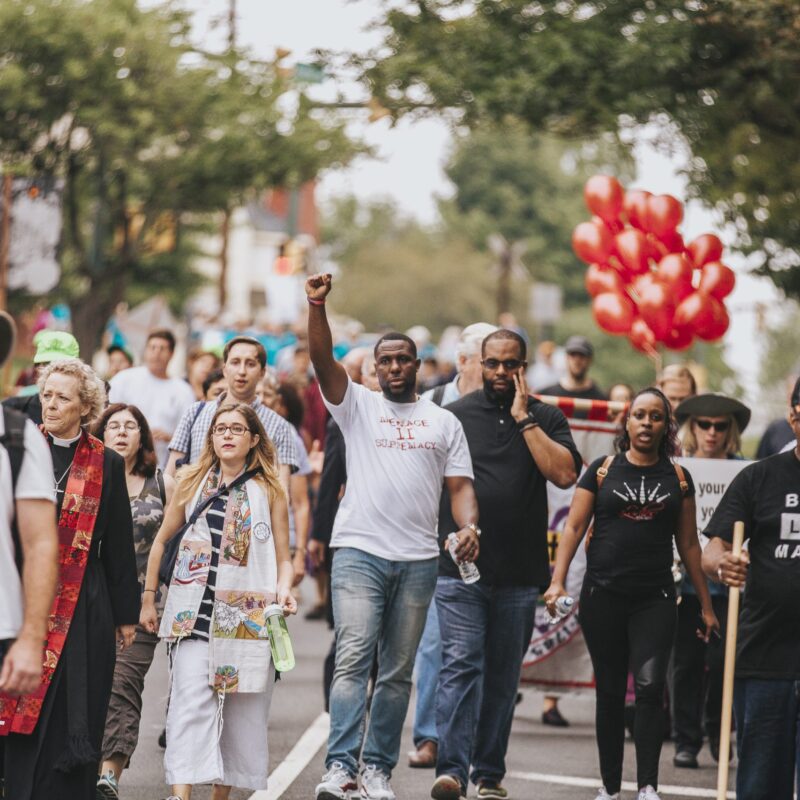 Joel Salatin (left) is trying to get someone to sponsor a bill that would allow Richard Bean (right) to process his own pork without state oversight. “The culture is still worshiping at the feet of experts,” Salatin says. |
In the General Assembly session that will kick off this week, State Senator Creigh Deeds will introduce an amendment to the state code that regulates the inspections required to operate a food establishment. Deeds’ amendment would exclude “[p]rivate homes where the resident processes and prepares food products, provided that such products (i) are sold to an individual for his own consumption; (ii) are labeled ‘NOT FOR RESALE—PROCESSED AND PREPARED WITHOUT STATE INSPECTION’; and (iii) do not require a license for their production and sale.”
| Previous Double H coverage:
Double H Farmers waive hearing Double H Farmers Plead guilty All you can’t eat Nelson County for Double H Double H farmers busted for selling pork Previous local food coverage: Food fights The $5 tomato |
The key part is the last section, which specifies food products that do not require licensing. As a result, this bill does not cover hogs, for instance, or milk. “Simple stuff,” clarifies the senator (and candidate for governor). Items like bread, pickles and jam would fall into the protected category.
“If you and I as the consumer choose to buy that product and we’re aware that we’re buying at our own risk and from someone who has not met all the government regulations, we ought to be able to do that,” Deeds says. “It’s freedom of choice.”
From the sound of it, the recent bestseller, The Omnivore’s Dilemma, has had an impact on Deeds. He describes Michael Pollan’s book as “one of the most important works of nonfiction in a long time.”
One of that book’s subjects also seems influential. “Joel Salatin of Polyface Farms was in the first district I represented,” Deeds says. “I made a trip out to his farm this past fall, the first time I’ve ever been out there.”
For his part, Salatin has been trying to find a sponsor for another piece of proposed legislation that would exempt “any farmer raising, slaughtering and processing his own hogs on his own farm for his personal use and for sales and delivery directly to consumers on the farm for their personal use.”
“Politics is stranger than anything,” Salatin says, admitting that this amendment is an attempt to capitalize on the “brouhaha” surrounding Richard Bean and Jean Rinaldi’s arrest in the fall for selling uninspected pork. “The culture is still worshiping at the feet of experts,” he says. “It’s a fraternity of ideas.”
A third bill, as yet without a sponsor, would aim to beat back a mandatory National Animal Identification System (NAIS), an animal tagging system that is supported by big agri-business.
On January 8, goat farmer and tireless local food advocate Christine Solem will travel to Richmond to appear before a joint commission on administrative rules that is considering an appeal of a proposed measure to eradicate Scrapie, a rare disease in goats and sheep. Small farmers see the measure as a back door attempt to impose NAIS.
C-VILLE welcomes news tips from readers. Send them to news@c-ville.com.





